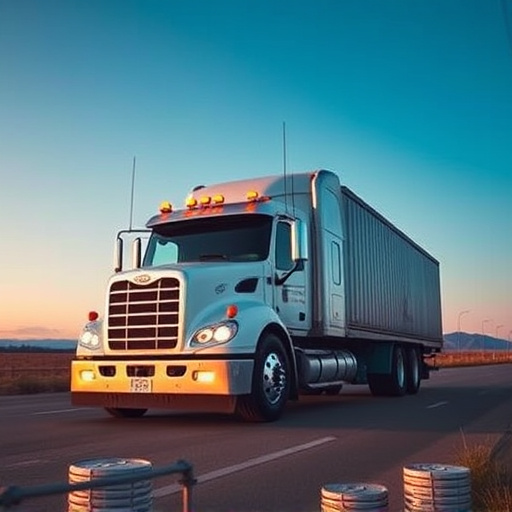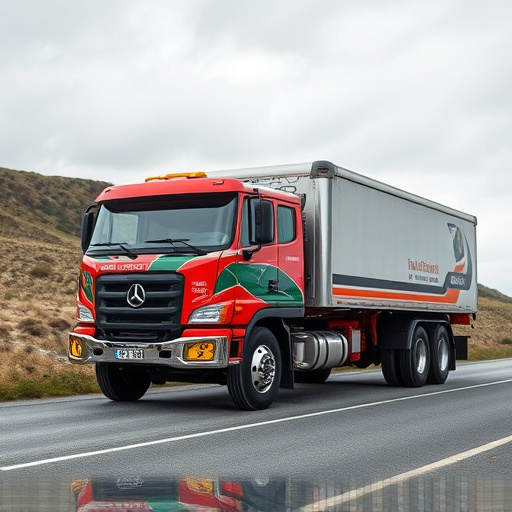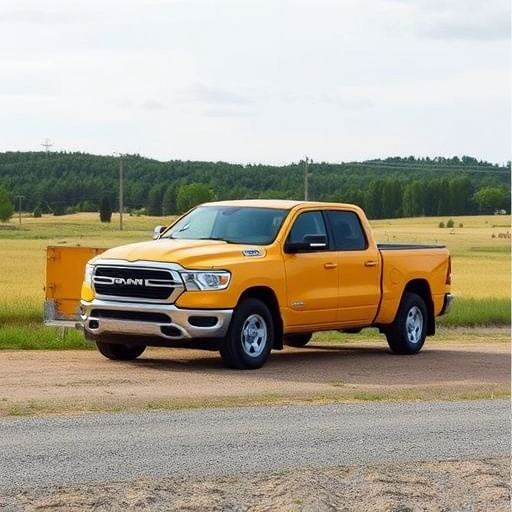Understanding your RV's power needs is vital for a smooth camping experience. When selecting a truck battery, consider factors like cold-cranking amps (CCA) and battery type (e.g., lead-acid, lithium-ion, AGM). Deep-cycle batteries are popular due to their ability to handle frequent discharges. Proper maintenance, including regular cleaning, charge management with smart chargers, and correct storage, ensures your RV's truck battery performs optimally in varying conditions, preventing premature degradation.
Looking to power your RV’s every need? Choosing the right truck battery is crucial. This guide breaks down everything you need to know about RV power requirements, from understanding unique electrical demands to exploring different types of truck batteries designed specifically for RVs. We’ll walk you through essential factors like capacity, cold cranking amps, and maintenance needs, ensuring you select the best fit. Discover expert tips for maximizing your RV battery’s longevity and performance.
- Understanding RV Power Requirements
- Types of Truck Batteries for RVs
- Factors to Consider When Choosing an RV Battery
- Maintenance and Longevity of RV Truck Batteries
Understanding RV Power Requirements

Understanding RV Power Requirements
Recreational vehicles (RVs) have unique power demands compared to standard automobiles, thanks to their diverse electrical systems supporting amenities like heating, cooling, lighting, water pumps, and appliances. Unlike a regular truck battery designed for starting an engine, RV batteries need to supply consistent power throughout the day and night, often in varying climates. They must be robust enough to handle frequent discharges and recharges while efficiently managing energy consumption.
When selecting a truck battery for your RV, look for deep cycle or marine batteries optimized for constant power delivery. These batteries are built to withstand multiple cycles of discharge and recharge without degrading performance, ensuring they can keep up with the demanding electrical needs of modern RVs. Additionally, consider factors like cold-cranking amps (CCA) to gauge the battery’s starting capacity in cold temperatures, as well as weight and size to ensure proper fit within your RV’s battery compartment.
Types of Truck Batteries for RVs

When it comes to powering your RV, choosing the right truck battery is essential for a smooth and enjoyable camping experience. RV owners often opt for specific types of batteries designed to meet the unique demands of their vehicles. The primary options in this category are lead-acid batteries, lithium-ion batteries, and AGM (Absorbent Glass Mat) batteries.
Lead-acid batteries, a traditional choice, offer reliability and affordability but require more maintenance. Lithium-ion batteries, on the other hand, provide lightweight power with quick charging capabilities, making them popular among modern RV owners. AGM batteries are known for their deep cycle performance, durability, and spill-proof design, ensuring peace of mind during your travels. Each type has its advantages, catering to various RV needs and preferences.
Factors to Consider When Choosing an RV Battery

When choosing a battery for your RV, several factors come into play. Firstly, consider the size and capacity required to match your vehicle’s power demands. RVs have varying electrical systems, from simple lighting to more complex appliances, all of which draw power at different rates. Therefore, assessing your energy needs is crucial to selecting a suitable battery.
Additionally, the type of truck battery matters. Deep-cycle batteries are commonly used in RVs due to their ability to handle frequent deep discharges, ensuring reliable performance during extended stays or when using multiple power-hungry appliances. Furthermore, look into maintenance requirements—some batteries require regular topping up or servicing, while others are maintenance-free, making them a more convenient option for RVers who value hassle-free experiences.
Maintenance and Longevity of RV Truck Batteries

Maintaining your RV’s truck battery is crucial for ensuring optimal performance and longevity. Unlike car batteries, RV batteries face unique challenges due to their constant exposure to extreme temperatures, varying load demands, and often undercharging conditions when the RV isn’t in use. Regular cleaning of corrosion from the battery terminals can significantly improve power output and extend battery life. Additionally, checking the battery’s state of charge regularly and using a smart charger to maintain that charge level is essential.
Longevity also depends on proper storage when the RV isn’t in use for extended periods. Keeping the battery charged at around 50% capacity and storing it in a cool, dry place can prevent premature degradation. Moreover, choosing a high-quality truck battery from reputable brands designed specifically for RV applications can make a significant difference. These batteries are often built to withstand harsh conditions and provide consistent performance over time.
When it comes to powering your RV, choosing the right truck battery is essential for a smooth and enjoyable camping experience. By understanding your RV’s power needs, exploring suitable battery types, considering key factors, and implementing proper maintenance, you can ensure your battery performs optimally and lasts for years to come. Select a high-quality truck battery that aligns with your RV’s specifications, and remember that regular care will significantly extend its lifespan.
